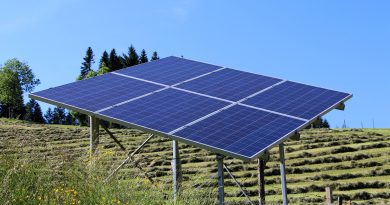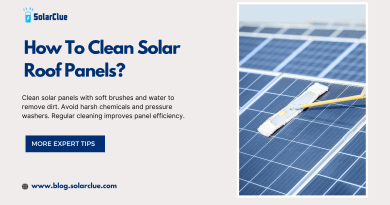Is a solar rooftop system for homes beneficial or not?
In recent years, there has been a growing interest in utilizing solar energy as an alternative source of power for homes. One of the most popular ways to harness solar energy is through the installation of a solar rooftop system. This system consists of solar panels that convert sunlight into electricity, which can be used to power various appliances and reduce reliance on the grid. However, the question remains: is a solar rooftop system for homes truly beneficial? In this blog, we will explore the advantages and disadvantages of adopting this technology and provide a comprehensive analysis of its long-term impact on homeowners.
The Advantages of Solar Rooftop Systems
1. Cost Savings
One of the primary benefits of investing in a solar rooftop system is the potential for significant cost savings. By generating their own electricity, homeowners can reduce or even eliminate their reliance on the grid, thus reducing their monthly energy bills. Additionally, some governments offer incentives and tax credits to encourage solar adoption, making the initial investment more affordable. Over time, these savings can add up and offset the initial cost of installing the solar panels.
2. Environmentally Friendly
Another compelling reason to consider a solar rooftop system is its positive impact on the environment. Unlike traditional energy sources, solar energy is clean and renewable. By opting for solar power, homeowners can reduce their carbon footprint and contribute to a more sustainable future. Additionally, solar energy production does not release harmful greenhouse gases, making it an environmentally responsible choice.
3. Energy Independence
Installing a solar rooftop system grants homeowners a certain degree of energy independence. With a reliable source of energy right on their rooftops, homeowners are less vulnerable to power outages and fluctuations in grid supply. This can be particularly beneficial in remote areas or regions prone to extreme weather conditions. By becoming self-sufficient, homeowners can have peace of mind knowing that their homes will still have power during blackouts.
4. Long-Term Investment
While the upfront cost of installing a solar rooftop system may seem steep, it is important to consider it as a long-term investment. Solar panels are durable and require minimal maintenance, which means they can last for several decades. Over their lifespan, the cost of electricity generated by solar energy will be significantly lower compared to traditional sources. This makes solar rooftop systems a financially viable option, especially for homeowners who plan to stay in their current residence for an extended period.
The Drawbacks of Solar Rooftop Systems
1. High Initial Cost
One of the main deterrents to adopting a solar rooftop system is the initial cost associated with installation. While prices have decreased over the years, the upfront investment can still be substantial for some homeowners. However, it is important to recognize that this cost can be offset by long-term energy savings and potential incentives provided by governments or utility companies.
2. Dependence on Sunlight
Solar panels rely on sunlight to generate electricity, which means their efficiency may be compromised during cloudy or rainy days. This dependence on sunlight can limit the energy production of the system, especially in regions with less sun exposure. However, advancements in solar technology have allowed for improved efficiency in low-light conditions, mitigating this drawback to some extent.
3. Space Requirements
Solar rooftop systems require sufficient space on the roof for the installation of the solar panels. For homeowners with limited roof area or facing shading issues, this can be a limiting factor. Additionally, not all roof orientations are ideal for optimal energy production. However, professional installers can assess whether a rooftop system is feasible for a particular home and suggest alternative solutions if space is a concern.
4. Maintenance and Repair
While solar panels are generally low maintenance, they still require periodic cleaning and inspection to ensure optimal performance. Additionally, if any issues arise, such as panel damage or faulty wirings, homeowners may need to bear the cost of repairs. However, reputable installers often provide warranties and after-sales service, minimizing the potential financial burden on homeowners.
Conclusion
Embrace the power of the sun with SolarClue® by your side! In conclusion, a solar rooftop system for homes brings forth numerous benefits that make it an irresistible choice for homeowners seeking to save on energy costs, reduce their environmental impact, and achieve energy independence. Despite the initial investment and occasional drawbacks, the long-term financial and environmental advantages often outweigh the downsides.
To make an informed decision, homeowners must carefully evaluate their energy needs, the suitability of their roof, and the available incentives. By adopting solar power, not only can homeowners relish the advantages of renewable energy, but they also actively contribute to a more sustainable future for generations to come. Join the solar revolution today with SolarClue®, your trusted partner in solar solutions, and let the sun power your journey to a greener and more efficient home.
Frequently Asked Questions
Benefits include reduced electricity bills, environmental sustainability, and potential government incentives.
Solar panels capture sunlight and convert it into electricity, providing a clean and renewable energy source for homes.
Solar systems are suitable for most homes with access to sunlight, but factors like roof orientation and space should be considered.
Solar panels typically have a lifespan of 25-30 years, and other components may require maintenance or replacement during this period.
The capacity of the system determines its ability to power a home. Larger systems can meet most or all of a home’s energy needs.
Many regions offer incentives, tax credits, or rebates to encourage the adoption of solar rooftop systems.
Installation duration varies based on system size and complexity but typically takes a few days to a couple of weeks.
Regular cleaning of solar panels and monitoring system performance are essential for optimal maintenance.
Yes, solar systems can be integrated with other sources like the grid or backup generators for continuous power supply.
While energy production may decrease on cloudy days, solar systems can still generate some power, and excess energy can be stored or drawn from the grid.



